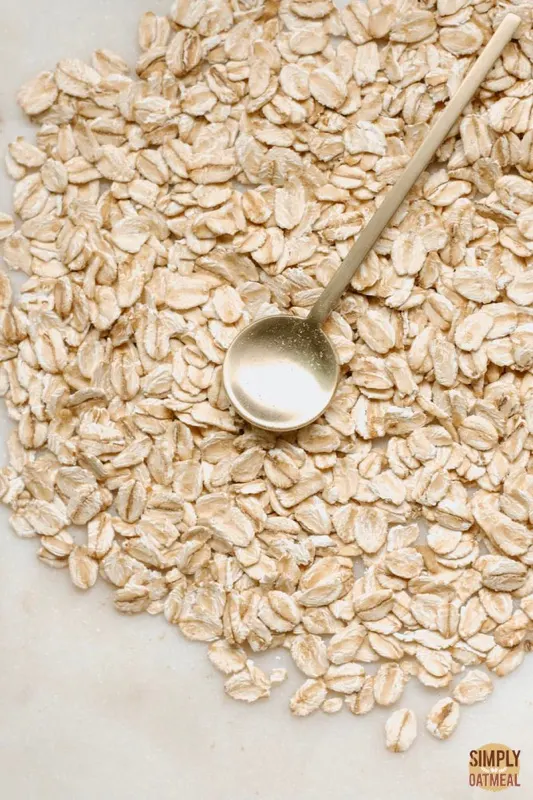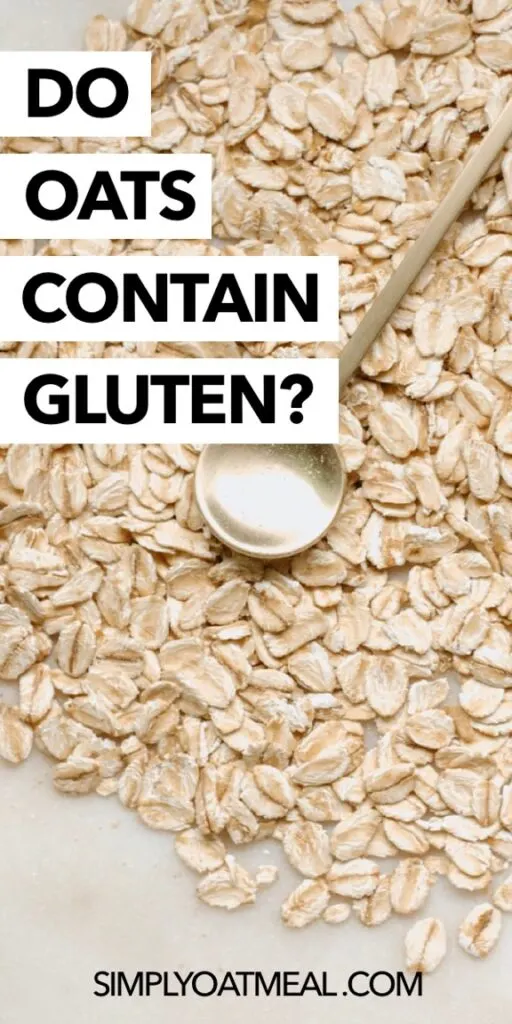Are whole grain oats gluten-free? Can people with celiac disease eat oats without cause for concern?
Whole grain oats are gluten-free, which makes them safe to eat for most people with gluten intolerance. However, it is important to realize that oats are often contaminated with gluten by harvesting equipment or processing facilities that also handle gluten-containing grains like wheat, rye, and barley.
Scientific evidence has proven that oats are gluten-free. Oats are not related to grains that contain gluten such as wheat, barley and rye, therefore the are completely safe for the vast majority of celiac patients.
As a result, using oats that are free of cross contamination from wheat, barley and rye can be added in a celiac’s diet. In actuality, any reaction or GA symptoms may result from the increased fiber provided by the oats instead of an adverse reaction to the oats themself.
If you are on a strict wheat free diet, keep reading to learn why some oats may contain gluten, what food labels you should pay attention to, and which brands you can trust when purchasing gluten-free oats.
What is gluten?
Gluten is a protein that is naturally found in grains like wheat, barley and rye. Gluten is formed when two proteins, glutenin and gliadin, come in contact with water.
In baked goods, gluten is the net that binds the dough together. It helps dough rise by trapping gas bubbles inside during fermentation, which gives baked goods their unique airy texture.
Gluten in not found in other grains like rice, buckwheat and oats. Fruits, veggies, meat, dairy, nuts, and legumes are also naturally gluten-free unless they become cross contaminated.
Are Oats Gluten-Free?

Yes, oats are naturally gluten-free. However, the main concern remains with food handling practices and cross contamination in the field or production facilities.
Although oats are safe for people to eat who have celiac disease, cross contamination must be avoided in order to steer clear of GI discomfort, digestion issues or painful flareups.
Not all oats are created equal, and that is why you must be selective if you are trying to avoid discomfort.
Can I eat oatmeal if I am allergic to wheat?
Roughly 1% of the people in the United States, about 3 million, have celiac disease. A gluten-free diet is the recommended treatment for people with CD. However, cross contamination is a concern because an intestinal flareup can occur at anytime if a person accidentally consumes gluten.
Oats do not contain gluten, however they are very susceptible to cross contamination is the field during harvesting and most commonly through facility production and packaging. Contamination occurs when oats come in contact with gluten containing grains like wheat, barley or rye.
Oats contain avenin, which is a protein similar to gluten. Although it’s not very common, some people experience discomfort after eating gluten-free oats. Another study suggests that there is only a slight risk of a cross-reaction with oats.
There appears to be differing levels of gluten intolerance when it comes to celiac disease. If you suffer from gluten sensitivity to cross-contamination then that is classified as one of the more extreme cases.
The Journal of Autoimmunity published a study involving a test group with CD that ate 100 grams of gluten-free oats for three days in a row. Only eight percent of participants had an adverse reaction to the oats.
After the study concluded, a few participants reported digestive issues. The researchers suggest that some people that eat a gluten-free diet might experience digestive issues resulting from the high fiber content found in oats and oatmeal.
In general, eating gluten-free oats seems to be safe for most that have celiac disease. Check for products that are clearly labeled and certified gluten-free in order to reduce the risk of cross-contamination.
Can you be sensitive to oats?
There are a small amount of people that actually experience an oat intolerance. It true that oats do not contain gluten, but cross contamination is an inherent risk due to the close proximity to gluten containing grains in the field, production and packaging.
Research results produce conflicting opinions about oat allergies. It is unclear whether this is simply due to trace amounts of contamination or if people are actually encountering oat sensitivity.
Intestinal discomfort can also be a result of the high fiber content of oats. Oat side effects are common in the beginning, especially if your body is not used to having much fiber.
If you are faced with digestion issues or GA inflammation, then it’s recommended to consult with a physician.
Labeling Gluten-Free Oats
United States standardized labeling requirements for gluten-free foods in 2013. Producers can voluntarily label products as gluten-free if they meet specific U.S. Food and Drug Administration (FDA) requirements.
Foods marketed as gluten-free must have less than 20 parts per million of gluten-containing grains such as wheat, rye, and barley.
FDA regulations for gluten-free foods apply to four different terms:
- gluten-free
- free of gluten
- no gluten
- without gluten
You may need to search around for products with this specific declaration. In general, they are kept in a separate area within the grocery store as to not confuse consumers with wheat containing products of a similar type.
The FDA does not require specific placement for the term “gluten-free,” or provide any specific label, insignia or logo. Although the specific requirements may be met, any gluten-free logo that you see on the packaging is a certification provided by a third-party process.
How To Buy Gluten-Free Oats
Carefully read the labels to determine whether or not the oats are gluten-free. If you are unsure, then don’t consume the oats until you find out the answer. Some people experience much more sever reactions than others, therefore it’s not worth the risk.
Some gluten-free oats and oatmeal products include:
- Bob’s Red Mill Gluten-Free Extra Thick Rolled Oats
- Bob’s Red Mill Gluten-Free Quick-Cooking Oats
- Bob’s Red Mill Gluten-Free Scottish Oatmeal
- Glutenfreeda Gluten-Free Oatmeal
- McCann’s Gluten-Free Irish Oatmeal
- McCann’s Gluten-Free Quick & Easy
- McCann’s Gluten-Free Steel Cut
- Nature’s Path Organic Hot Oatmeal, Gluten-Free
- Nature’s Path Qi’a Superfood Gluten-Free Oatmeal
- Udi’s Gluten-Free Plain Steel Cut Oats
- Quaker Select Starts Gluten-Free Instant Oatmeal
If you are unsure about any brands, labeling or packaging, then ask an associate at the supermarket to help you out. In general, gluten free products are all kept in one area of the market. This is so that consumers don’t accidentally confuse a gluten free product with another similar type.
Furthermore, you can consider ordering specific brands online if you are unable to find them at your local store.
Because of the close affiliation with gluten containing grains, it’s recommended to stay away from processed foods or home cooked meals that contain oats if you are unsure of the source.
The Bottom Line
Oats are naturally gluten-free. If you have celiac disease, then it is safe for you to eat oats that are labeled gluten-free.
In order for a manufacturer to place a gluten-free label on the packaging, the product must meet specific FDA guidelines that keep you safe.
If your oats are not specifically labeled as gluten free, then they may contain gluten via cross-contamination. Due to the close proximity in the factory and field, oats may have some gluten contamination.
The exact levels of contamination and sensitivity can vary, so look for the gluten-free label if you have any concern about your GI abilities to process gluten.
If you experience gluten sensitivity, then it is recommended to steer clear of oats that are not certified as gluten-free.
Try some of the delicious oatmeal recipes using gluten-free oats, and let us know which ones are your favorites by commenting below!

